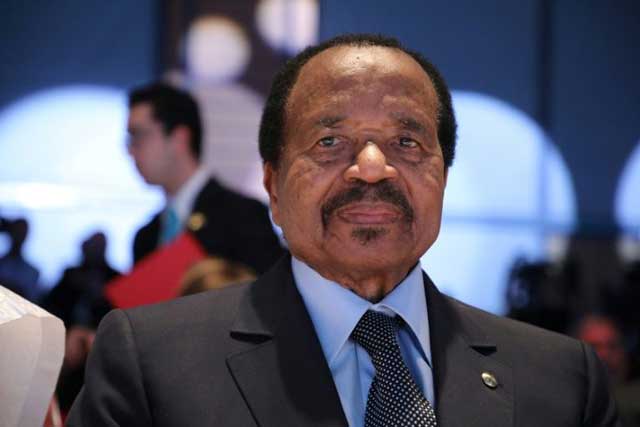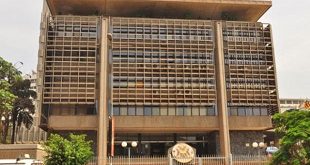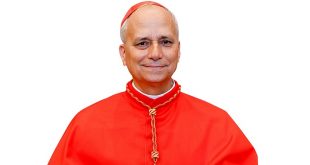
Why we need to remove Western lenses when analysing politics in Africa
THE LAST WORD | Andrew M. Mwenda | During the USA-Africa summit in December last year, President Paul Biya of Cameroon was videotaped in a highly compromising situation. Old and senile at almost 90, he entered the conference hall unaware of where he was and what he was supposed to do. “Oh wow, so I have become a celebrity?”, he asks his aide, “Who are all these people present?” When the aide tells him that he is supposed to give a speech, he says, “Are there important personages among them.” It is a very embarrassing moment for the old man and one wonders why and how he is keeping in power.
Last week, activist Godbar Tumushabe posted an article by someone on Al Jezeera who was lambasting Biya. The author, Tafi Mhaka, says Biya is not fit for office – and I agree entirely. But after that, in typical Africa-analysis fashion, Mhaka proceeds to moralise rather than analyse. He makes no effort to shade new light into Africa’s assumed challenges or breathe fresh air into the stale debate about our politics. Instead, the author only regurgitates the old and wornout prejudices that have dominated intellectual discourse about Africa for the last seventy years.
First is this focus on individual leaders rather than the social structures and forces behind them. When I watched Biya’s miserable display, I wondered how such a senile old man manages to keep power: win (or successfully rig) elections, stave off military coups, civil wars, etc. Are we not missing something important? We always complain about the personalisation of power in Africa and the lack of strong systems or institutions. Isn’t it possible that Biya has built such powerful systems that cameroon doesn’t need much of him to run the country but only as a symbol? Therefore, the real questions we should be asking are: how is power in Cameroon organised? How is it distributed? How is it exercised? And how is it reproduced?
As an aside, what Biya did is almost similar to what President Joe Biden has been doing. Old and senile, Biden can hardly read his own speeches speeches or remember things. He keeps making one big goof after another on television. If you watch Fox News, they have a segment on his goofs on a daily basis, making fun of him. CNN doesn’t for obvious reasons. Yet if the Biya video was staring Biden, the same African “intellectuals” would argue that the USA has strong systems and institutions and therefore the senility of its president is of little consequence.
Painting the Cameroon story with a broad brush of bias and prejudice doesn’t tell us anything about that country. Perhaps that is why we have been complaining forever about our leaders because we are intellectually lazy to interrogate these issues. How can a senile old man who cannot even know where he is run a country where power is personalised? There must be many people in Cameroon, including in his own government, who would love to replace him. I can only infer that power in Cameroon is in the hands of a group of people or interests who use Biya only as a symbol.
Second, Mhaka referenced his article with the example of the prime minister of New Zealand who recently resigned because she felt she had lost energy and motivation. Here one sees the intellectual poverty with which we approach debate about politics (and everything else) in Africa. So, an article about governance in Africa began with an example of governance in New Zealand. But can strategies of governance in poor Africa be the same as that of a highly advanced country like New Zealand? Why should best practice in Africa be based on best practice in the Western world? Western countries are at very different levels of development. Does the level of development shape governance strategies?
In fact, if we are to make any comparison with the West at all, we should ask how were Western countries governed when they were at the same level of development as African countries today. For instance, we can identify neutral indicators such as the rural-urban distribution of population, percentage of people who depend on industry/services for a livelihood and those who depend on agriculture, the level of per capita income, per capita revenue and per capita spending, and the level of adult education.
Once we have established these facts, we can proceed to ask what governance strategies ruling elites in Western societies employed to manage power. Interestingly, I have done such a study and one would be surprised how similar our governance systems are to those of the West when it was at the same level on all those indicators as we are today. In fact, African countries are governed much better today than Western countries when they were at our current levels of development based on the indicators above.
Third, let us accept, just for argument’s sake, that governance strategies do not depend on levels of development. Then we can compare Cameroon with Africa countries considered “democratic” because they mimic West political systems: Benin, Senegal, Malawi, Ghana, Zambia, Kenya. Here leaders have term limits which are “respected” and opposition wins elections so that we have witnessed change from a ruling party to an opposition party. We can identify neutral indicators (economic growth, health and education, roads, life expectancy, electricity, clean water, etc) and we see whether they are any different from Cameroon or Uganda where President Yoweri Museveni has been clinging to power for 37 years.
Malawi and Benin are among the world’s poorest countries. Mali, Guinea Conakry and Burkina Faso were democracies with peaceful change of government that have succumbed to military coups in the last three years. Ghana, Zambia and Kenya have declared (or are about to declare) bankruptcy. In fundamental terms what has their mimicry of western systems given them? If we peeled beneath their democratic façade to examine more closely the internal organisation of power, we are likely to find that the governance strategies of Kenya and Cameroon may vary in form but not substance.
There is an urgent need to try and remove western lenses when dealing with politics in Africa. We need to approach our politics based on the specificities of our countries. It is possible people like Biya represent something fundamental about our level of social and political evolution. And that “something” cannot he wished away, except at a high cost, perhaps a tragic one. I really don’t know but I don’t think they are an aberration.
******

amwenda@independent.co.ug
 The Independent Uganda: You get the Truth we Pay the Price
The Independent Uganda: You get the Truth we Pay the Price




Thanks, I enjoy reading about design, systems and structure thinking. That is where we need to point our finger and suggest solutions. I always read your articles and hope to start sending articles to your magazine. Keep it up.
There is a widespread assumption that presidents who rule for long do so out of personal greed for power.